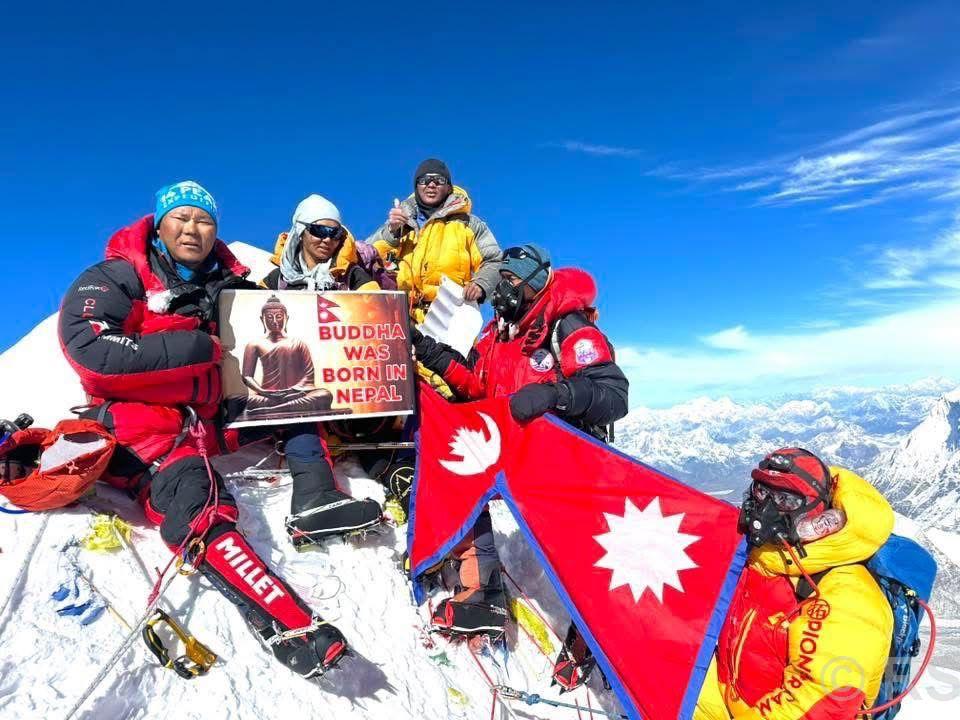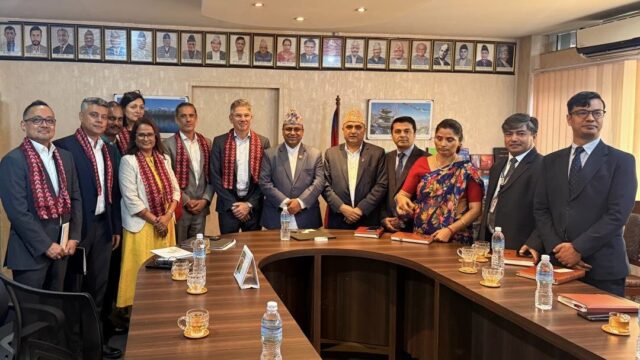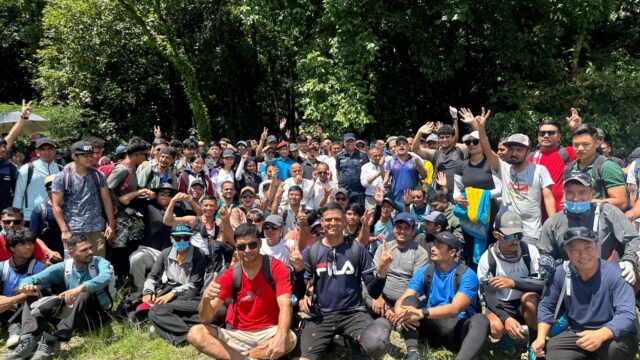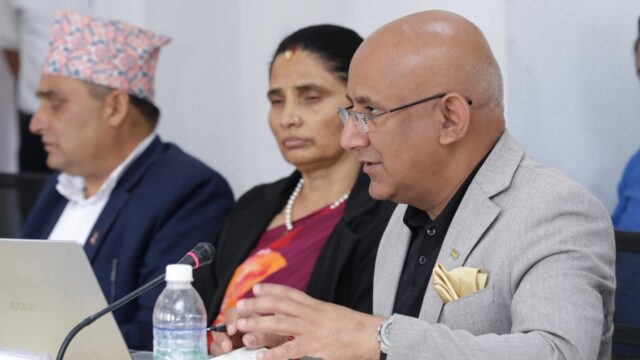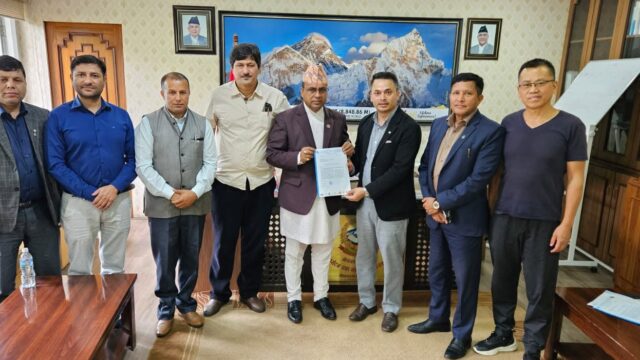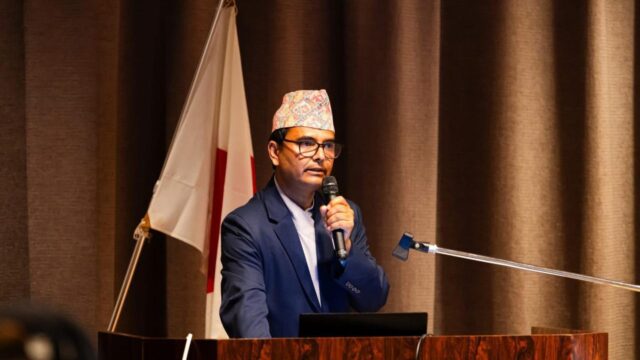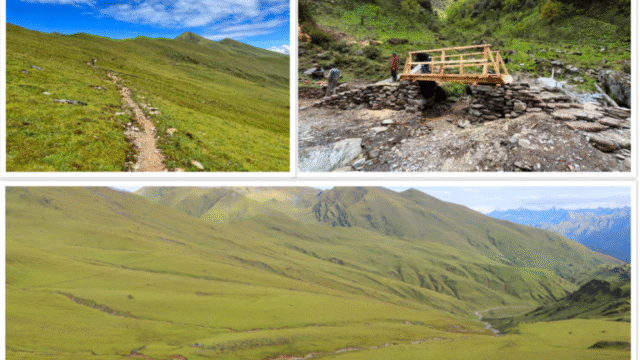In a remarkable achievement for both mountaineering history and family legacy, six members of a single Sherpa family from Makalu Rural Municipality-2, Sankhuwasabha, successfully reached the summit of Mt. Makalu, the fifth-highest peak in the world standing at 8,485 meters above sea level. The historic ascent, which took place on May 9, is being hailed as a potential world record for the most siblings to conquer this formidable Himalayan giant together.
The expedition team comprised Muktu Lakpa Sherpa, his three brothers Ngima Dorchi Sherpa, Ang Di Sherpa, and Pechhumbe Sherpa, his sister Pasang Sherpa, and his 23-year-old grandson Anima Sherpa. The extraordinary climb was a result of months of preparation, shared dedication, and the spirit of adventure that runs deep within the Sherpa community of eastern Nepal.
A Family Legacy on the Summit
Speaking after the ascent, Muktu Lakpa Sherpa stated, “This climb was not just about reaching the top of Makalu. It was about our family bond, our heritage, and the legacy we want to leave behind for the next generation.” He claimed that their family has now set a new record for the highest number of siblings climbing Mt. Makalu together.
The feat is especially significant given the technical difficulty of Mt. Makalu, which is often considered one of the most challenging 8,000-meter peaks due to its steep pitches and knife-edged ridges. Despite these obstacles, the team reached the summit safely, reflecting their high-altitude experience, teamwork, and strong mountain roots.
Youngest Summit Record Claimed
Adding to this already exceptional achievement, Pasang Sherpa, the only sister in the team, proudly shared that her 23-year-old niece, Anima Sherpa, could be the youngest person to summit Mt. Makalu to date. While official verification of the age-based record is pending, the possibility further enhances the historic significance of the family’s accomplishment. Pasang stated, “We are immensely proud of Anima. She represents the new generation of Sherpas who are carrying forward our ancestral courage with grace and skill.”
Local and National Recognition
Upon returning from the expedition, the entire family was felicitated by the Makalu Rural Municipality, the Federation of Nepalese Journalists (FNJ), Sankhuwasabha Chapter, and the Sherpa Association. Local leaders praised the family’s unity, bravery, and contribution to Nepal’s reputation in the world of mountaineering.
During a special recognition ceremony, local authorities expressed their admiration for the family’s exceptional feat and the inspiration it provides to young climbers and the community at large. The rural municipality also announced plans to promote the family’s story as part of its effort to encourage tourism and adventure sports in the region.
Makalu – A Jewel of the Himalayas
Mt. Makalu lies in the Mahalangur Himalayas, on the border between Nepal and the Tibet Autonomous Region of China. Known for its pyramid-like structure and remote location, the mountain remains a challenging yet lesser-traveled peak compared to Everest.
Despite being the fifth highest mountain in the world, Makalu is often seen as more technically demanding. The successful ascent by a family group further highlights the level of resilience and expertise passed through generations of Sherpas who have lived in the shadows of the Himalayas for centuries.
A Moment of National Pride
Nepal, home to eight of the world’s fourteen peaks above 8,000 meters, continues to serve as the global epicenter of high-altitude mountaineering. The story of this Sherpa family not only showcases the human spirit’s triumph over adversity but also brings a sense of national pride to the people of Nepal.
This remarkable achievement is expected to gain attention not just in mountaineering circles but also in academic and cultural studies as an example of family heritage being woven into the pursuit of extreme sports and national identity.
Looking Ahead
The family now hopes their feat will be formally recognized by national and international record-keeping bodies. They are also planning to engage in advocacy for better recognition of local climbers and to promote eco-friendly mountaineering practices.
“We did this not just for our family,” said Muktu. “We did it for Sankhuwasabha, for Makalu, and for Nepal.” As mountaineering continues to evolve with commercial expeditions and international teams, the core values of community, courage, and connection to the land remain central to stories like these stories that are born in the remote villages of Nepal and echo across the world’s highest peaks.
